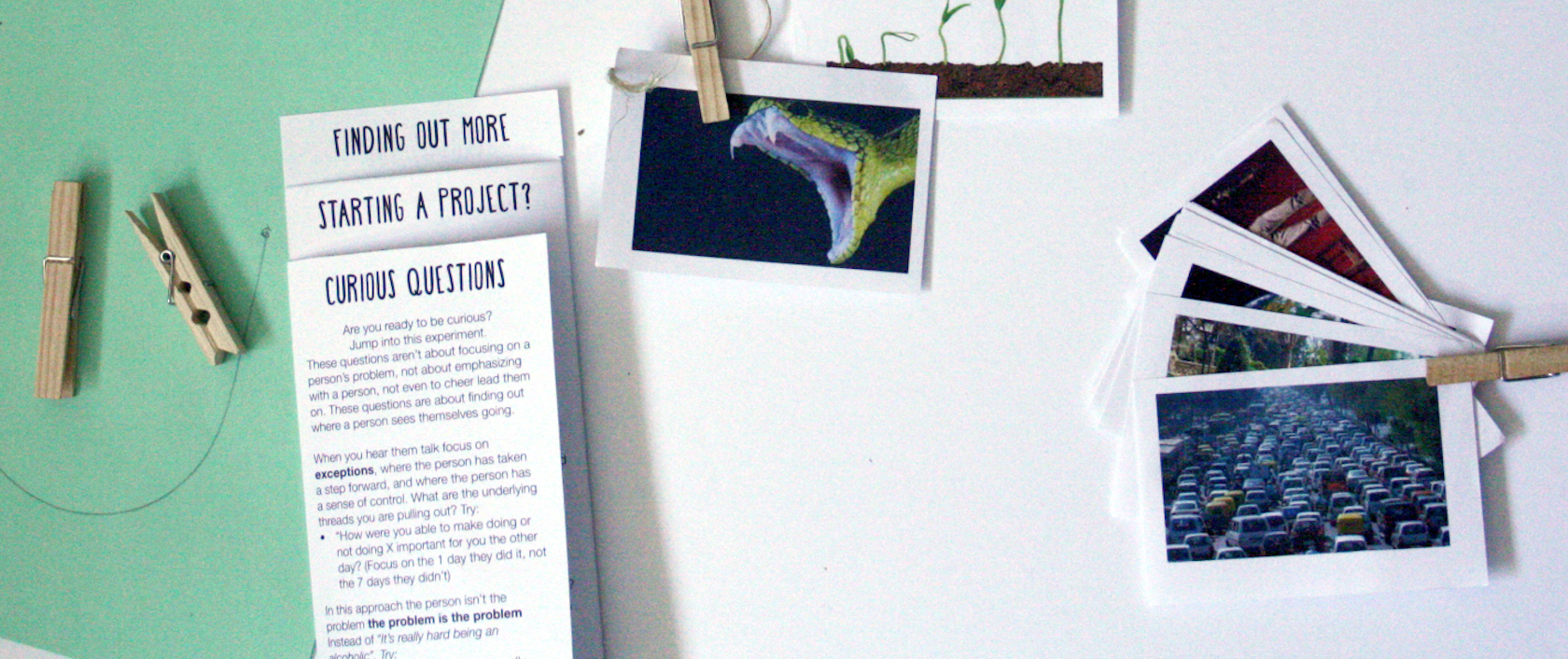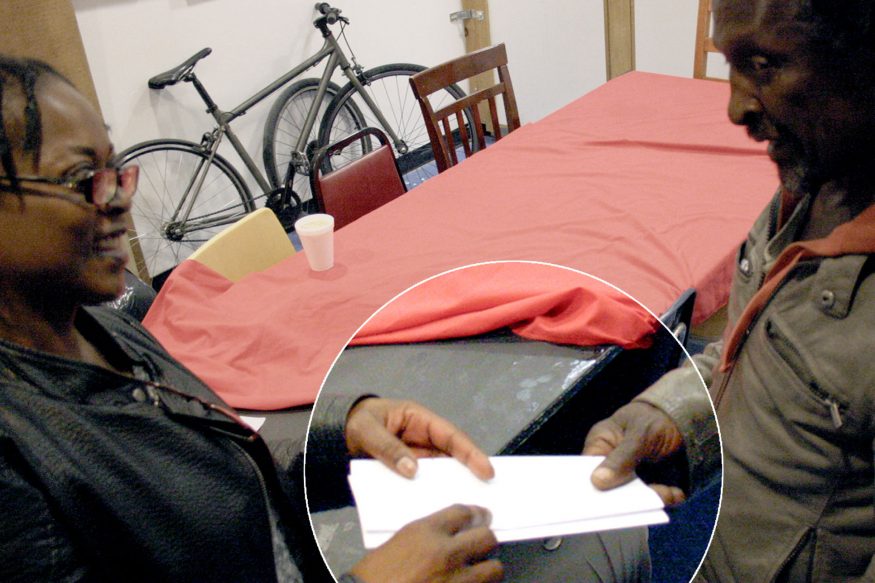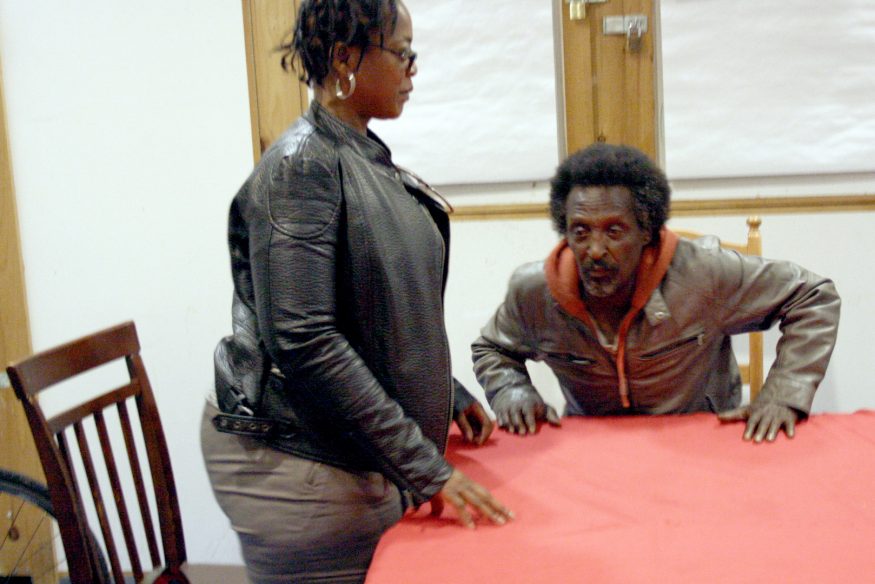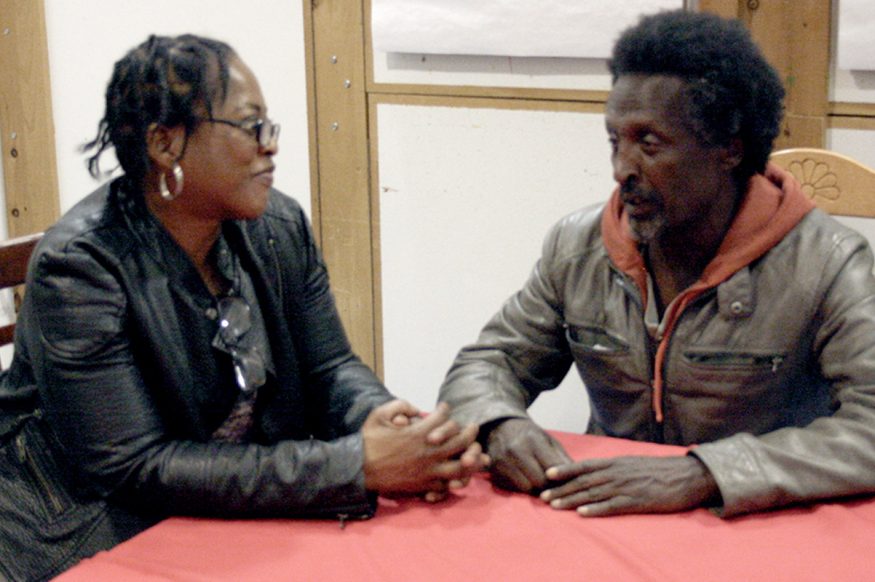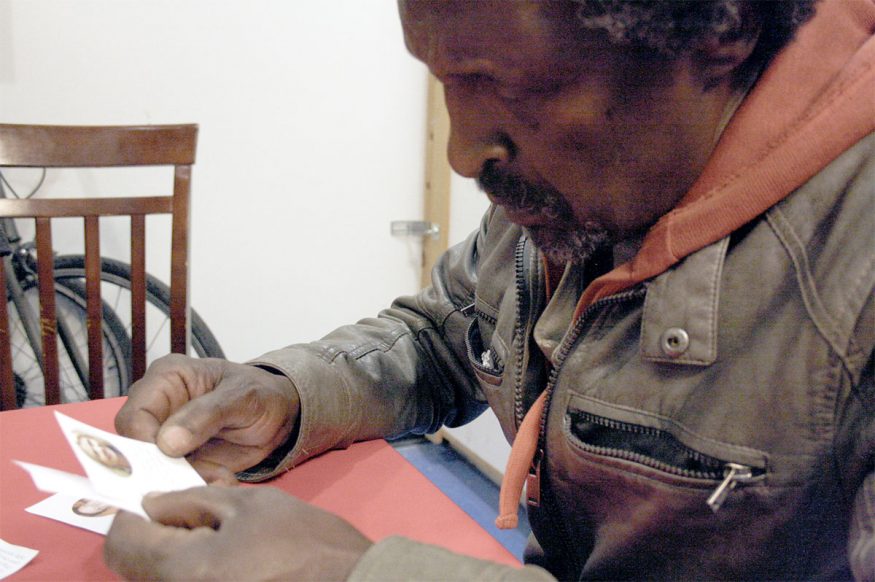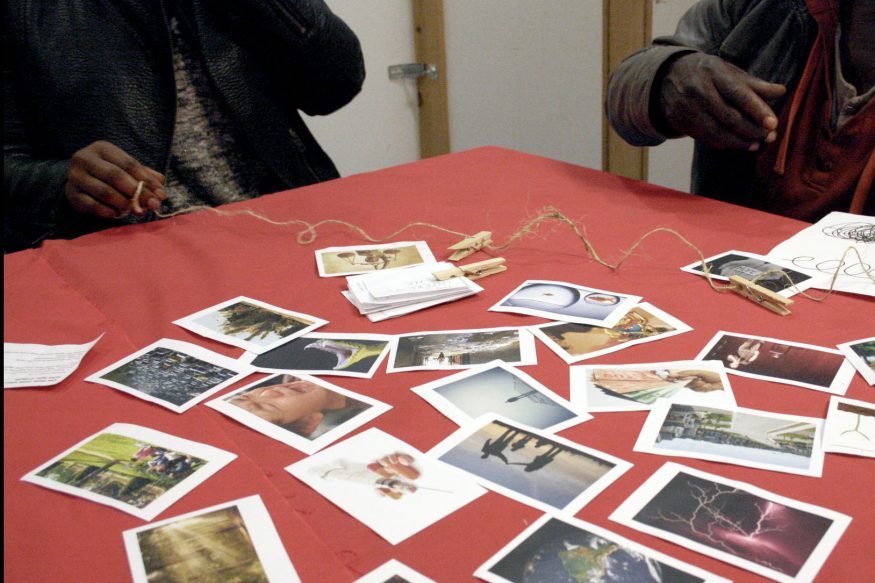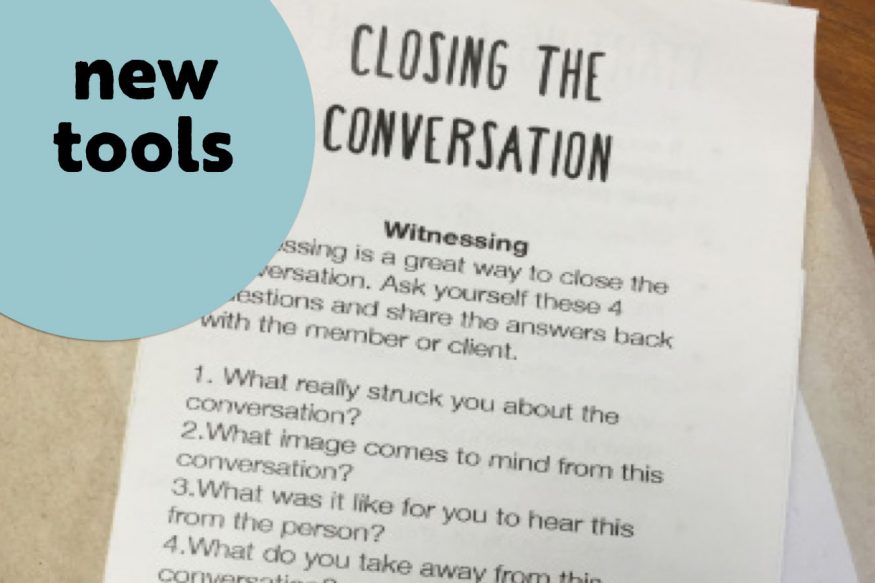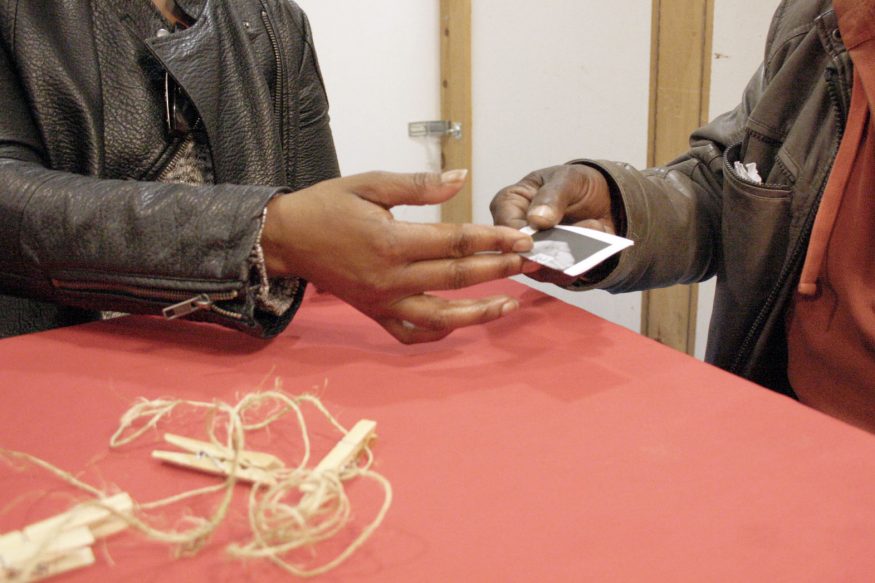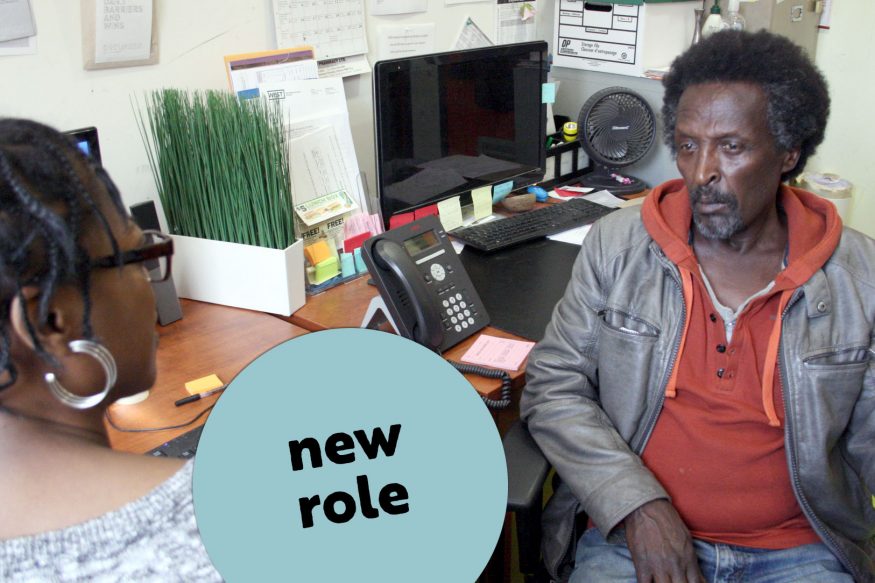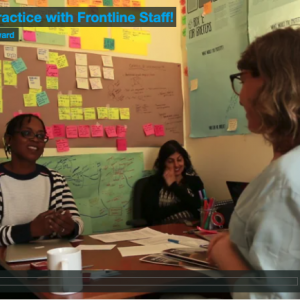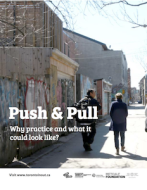
Component parts
- A tweaked role: Frontline workers take on the role of Reflector: someone who asks reflexive questions, actively listens, and ‘bears witness’ to what they hear.
- A set of tools: A deck of cards and a set of prompting questions to focus people in on their values, preferences, and small shifts.
- A set of principles: Curious conversations are intentional. They emphasize small exceptions, initiatives, and preferred developments. They are not conversations for problem solving or cheerleading.
Pain points
Curious Conversations comes from nine-months of observational research within a drop-in centre for street-involved adults where poverty, addiction, and trauma are daily companions. We watched as frontline staff spent much of their time attending to crisis: sorting out beds, coordinating laundry, and addressing health challenges.
We wondered how in a context predicted on stories of survival, we might also surface stories of growth? How could we celebrate and amplify readiness to change amongst street-involved adults?
Research & impact
Narrative therapy practices underpin Curious Conversations. Studies show narrative-based approaches can increase hopefulness, self-efficacy, and future orientation. Curious Conversations help people to revise the story they tell about themselves.


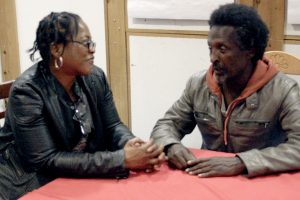
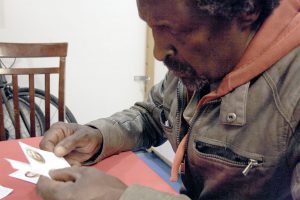
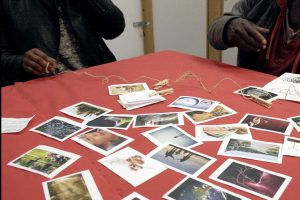


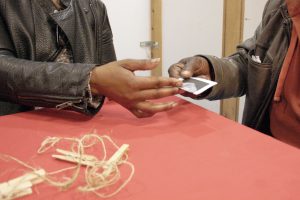

Core change mechanism at play with Curious Conversations:
Grow capabilities
We use story editing to help people own their stories and recognize their own capabilities and past solutions. It’s one of the 7 mechanisms we regularly use in developing new practice. Read more about story editing and the 6 other change mechanisms we use in our approach.
“I was struck by seeing Regan caring for others. Regan often feels guilty for leaving her kids, and was positively reminded about the caring side.”
We prototyped Curious Conversations for three weeks with two frontline workers and 10 street-involved adults. Adults who took part reported feeling a sense of hope and greater insight into themselves. We have not yet completed longitudinal follow-ups.
When Regan participated in a curious conversation, she started seeing herself as a nurturer and not just a user. One of her frontline workers shared with us:
Here’s another significant change story: Olivia took part in a curious conversation. At the start, she was fixated on a problem: “I can’t make appointments.” It was pointed out that she had made an appointment for this very conversation. This made her pause and reflect on her capacities. Further probing helped her identify her own strengths in the situation.
Team & Partners
Curious Conversations comes from the In/Out Project with West Neighbourhood House, and is supported by the Metcalf Foundation, the Ontario Trillium Foundation, and United Way.
Behind Curious Conversations is the little team that could: Margaret Fraser, Daniela Kraemer, and Lindiwe Tapera. Thanks to Geert Van Der Veen and David Pare, two narrative therapists, for their contributions.

Curious Conversations is in the prototyping and implementation stage. We are training interested practitioners and running feedback sessions. Get in touch with Daniela to learn more.
